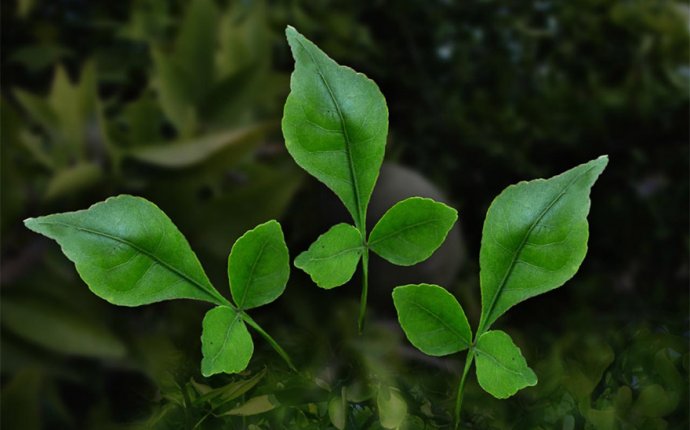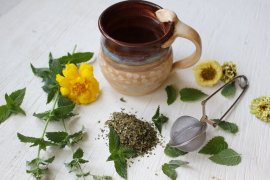
Diarrhea Ayurveda
 Mint tea, sipped throughout the day, helps replenish lost fluids.
Mint tea, sipped throughout the day, helps replenish lost fluids.
Are you suffering from diarrhea? Not fun. But diarrhea is actually one of the most common health problems; the average adult experiences about 4 episodes of diarrhea each year. Thankfully, in most cases, diarrhea is fairly easy to control and will resolve completely within a couple of days.
This resource is intended to help you understand the Ayurvedic perspective on diarrhea, and to give you some practical tools in support of healthy bowel movements, if you determine that they would be appropriate for you. However, if your diarrhea is unusual in its intensity or duration, or if it is occurring more often than very occasionally, it is also important that you consult with your primary health care provider. If your symptoms are due to a more complex disorder such as Irritable Bowel Syndrome or Crohn’s Disease, you might benefit from reading our more comprehensive guide to healthy elimination.
What Causes Diarrhea?
Loose or watery stools occur when the intestines push the stools through the bowel to be eliminated before excess water can be reabsorbed. Often, diarrhea is the body’s natural defense mechanism against a harmful virus or bacterium, an ingested toxin, or a food that disagrees with the digestive system. Diarrhea can also occur as a result of an inflamed bowel wall, which allows excess fluid to leak into the stool, as in Irritable Bowel Syndrome. Or, diarrhea may be the side effect of prescribed medication or an indicator of a more serious illness.
When is Diarrhea Serious?
Diarrhea is often accompanied by abdominal bloating, cramps, nausea, vomiting, or an urgent need to have a bowel movement. While these symptoms are unpleasant, they usually clear up with the diarrhea. More serious symptoms include:
- 10 or more watery stools within a 24 hour period
- Signs of dehydration (e.g. dark, scanty urine; dry, sticky mouth; extreme thirst; loss of skin elasticity – skin doesn’t rebound when it is pinched into a fold)
- Blood or mucus in the stool
- Black, tarry stools
- Weight loss
- Fever
- Worsening symptoms
These signs and symptoms can be an indicator of a more serious problem and, if any of them develop, it would be a good idea to contact your doctor.
Avoiding Dehydration
One of the most serious dangers of prolonged diarrhea is dehydration. Taking small sips of fluid throughout the day is one of the best ways to support hydration during episodes of diarrhea. Water (you can add a pinch of salt, lime juice, and natural sugar, if you like), mint tea, or rehydration tea are wonderful choices for replenishing lost fluids.
The Ayurvedic Perspective
According to Ayurveda, diarrhea occurs when the digestive fire is weakened, usually by excess pitta. Absorption and assimilation slow, and the movement of food through the digestive system is accelerated – causing liquidy stools. The remedy is to pacify pitta and to gently kindle agni. The following strategies specifically counter pitta’s hot, sharp, liquid qualities and can be very helpful in supporting the return of normal bowel movements.
Stewed apples can help when diarrhea is acute.
Dietary Remedies
When we suffer from diarrhea, the desire to eat a supportive diet is almost instinctual, and actually the diet is one of the most effective ways to treat diarrhea. Begin by eating a pitta pacifying diet, focusing on simple, grounding, nourishing foods and emphasizing energetically cooling foods, drinks, and spices – things like cilantro, coconut, coriander, fennel, and mint. It is also important to avoid hot, spicy foods, especially salty foods, intensely sour foods, alcohol, caffeine, and fermented foods, as they can further aggravate pitta. In addition, steer clear of sugary drinks and some sugar substitutes (like sorbitol, often found in chewing gum). These substances actually draw more water into the intestines and can intensify diarrhea.
Fortunately, there are also some specific food preparations that can help to curb an acute case of diarrhea rather quickly. Choose the one that sounds best to you:
- Stewed Apples
Peel and slice or chop 1-2 apples. Place in a small saucepan with about ½” of water, 1 teaspoon Ghee, and a pinch each of: Cinnamon, Cardamom, Nutmeg, and Natural Mineral Salt. Bring to a boil and then turn down to a simmer (if you need to add a bit of water, please do). Cook covered until the apples are mushy (at least 30 minutes). This dish is delicious and easy to digest. The apples are gently astringent and help to bind the stools. - Spiced Bananas
Chop 1-2 ripe bananas into bite-sized pieces. Garnish with 1 teaspoon warm Ghee, and a pinch each of: Cinnamon, Cardamom, and Nutmeg. This dish is delicious and nourishing. The potassium in the bananas helps to bind the stool. - Cooked Rice with Yogurt
Start with one cup of cooked Basmati Rice. Add 1 tablespoon of Ghee and ¼ cup plain, fresh (ideally homemade) yogurt. Mix together and enjoy. This dish is soothing, grounding, and nutritive, and the probiotics in the yogurt help to restore the strength of agni. - Lassi (Diluted Yogurt)
If something lighter sounds best, blend ½ cup of fresh, plain yogurt (ideally homemade), ½ cup of water, and ⅛ teaspoon fresh, grated ginger, and drink. This probiotic drink is easy to digest and it gently kindles agni.
Supportive Herbs and Spices
There are a number of herbal combinations that help to soothe pitta in the digestive system while gently kindling agni. Some of them are made with common household spices:
- Mix 1 teaspoon Ghee, ¼ teaspoon Ginger powder, ¼ teaspoon natural sugar. Take this mixture two to three times per day for two to three days.
- Or, mix ½ teaspoon Fennel powder with ½ teaspoon Ginger powder. Chew this mixture two to three times per day.
- Or, mix 1 teaspoon Psyllium husk into 1 cup fresh, plain yogurt (preferably home-made). Take this mixture at bedtime. The Psyllium absorbs excess pitta, helps to bind the stool, and the yogurt offers gentle probiotic support to agni. Before you add this herb to your routine, you will also want to check with either an Ayurvedic practitioner or your primary health care provider, as there are additional considerations that should be taken into account. For a more complete introduction to this herb, click on the link above.














